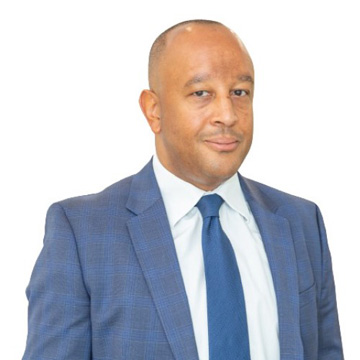02 December 2022
During recent weeks and months, a small number of wealthy taxpayers have received invitations to have a conversation with HMRC. The letter does not request a discussion concerning the accuracy of the entries contained on a tax return already submitted, but instead offers the opportunity to discuss entries that may not yet have been made on a self-assessment return that is not required to be submitted until 31 January 2023.
Taxpayers and tax dispute specialists alike may be relieved to know that these invitations are not a sign that HMRC has developed the kind of invasive artificial intelligence seen in Stephen Spielberg films.
HMRC interaction
These letters could, however, be a sign that HMRC would like to engage directly with high net worth individuals (HNWIs) going forward. We know, for example, that HMRC has asked stakeholders within the tax profession how its relationship with HNWI taxpayers can be improved.
If HMRC has concluded that proactive engagement is one of the approaches it would like to offer to HNWIs, taxpayers and their advisers need to consider the possible benefits, if any, of having discussions prior to submitting their returns. If taxpayers are prepared to move to pre-filing discussions, what should be on their wish list of desirable actions and outcomes from HMRC?
What is in it for taxpayers and their advisers?
It should be highlighted that there was no compulsion for a recipient of these recent letters to have a pre-filing conversation with their HMRC customer compliance manager (CCM). Indeed, the letters made it clear there was no need to respond if the taxpayer did not wish to have a call.
Currently, HMRC has very few powers to compel a taxpayer to attend a meeting, even in the case of an enquiry. Therefore, by accepting the invitation individuals and their advisers would be voluntarily entering into up-front discussions with HMRC to discuss tax positions that have yet to be self-assessed, and that may require careful consideration by the individual, perhaps after discussion with their adviser.
In circumstances in which there can be uncertainty concerning complex tax positions, such as resulting from a major life event, complex transactions or offshore structures, taxpayers may consider it advantageous to have early engagement with HMRC rather than wait 12 months or more for a potentially protracted enquiry to be opened. Many of us will have experienced detailed HMRC enquiries lasting several years. An opportunity to obtain earlier certainty on their tax position, or at least HMRC’s view of their tax position, may therefore become a more attractive proposition for some taxpayers in these uncertain global economic and geopolitical times.
What should be the terms of engagement?
For taxpayers to optimise the benefit of discussing their tax position before filing their return, collaborative and open engagement will be required from all parties involved. All those involved will need to demonstrate a willingness to have open and frank discussions and to consider each other’s views on potentially complex matters.
Proactively engaging with HMRC before a return has been filed gives taxpayers the opportunity to provide greater context to HMRC about their business and personal motivations, and the circumstances that may lead to the crystallisation of a particular tax position. Such direct engagement with HMRC should not commence with just the tax, which is where it normally starts with the ‘process and check’ system that applies under self-assessment. Proactive engagement can instead provide evidence of the underlying circumstances and commerciality and other motivations behind relevant transactions and events.
This new method of engagement is not going to change the requirement to provide HMRC with information, documentation and explanations relevant to the tax position of a transaction or event that is subject to enquiry. However, taxpayers may wish to take the opportunity to supplement any correspondence with HMRC with regular meetings to present, explain and clarify the information that is being provided, and remove, as far as possible, any scope for misunderstanding, which may otherwise hinder progress in resolving enquiries.
Nevertheless, the expectations of all parties will need to be managed, as a more proactive HMRC does not necessarily mean it will be more amenable to agreeing a tax position. In cases where agreement cannot be reached quickly by the provision of relevant additional information, a successful collaborative and open engagement can lead to a less adversarial and less protracted enquiry and, in the case of litigation, earlier agreement of the facts and the points of disagreement.
What should be expected from HMRC?
Voluntarily approaching HMRC to discuss the complex tax positions of HNWIs, helps HMRC to allocate its resources more effectively. The quid pro quo for taxpayers should be that HMRC dedicates sufficient and appropriate resource to consider and resolve complex tax issues the taxpayer has brought to it. This means there should be appropriate access to the technical and policy specialists responsible for the legislation relevant to the tax position being considered. HMRC should also consider providing earlier access to, and greater clarity of, the HMRC governance and decision-making process as part of this approach.
As indicated above, a key incentive for a taxpayer to voluntarily discuss their tax position with HMRC is to get earlier certainty of their tax position, so it is incumbent on HMRC that it is able to dedicate the resource to achieve this, and not maintain entrenched positions.
HMRC will also need to make a clear and sustained commitment to such an approach to overcome the reservations of taxpayers that have previously experienced serial and/or protracted enquiries by HMRC’s HNWI unit.
We understand that HMRC has faced resourcing difficulties throughout the coronavirus pandemic, but in the era of levelling up, it needs to consider how it can deliver improved service levels to all parts of the taxpayer population.
For more information, please get in touch with Matt Taylor or your usual RSM contact.



